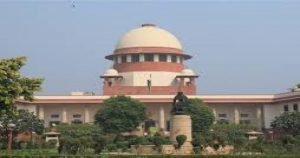Accused Persons Cannot be Forced to Answer Questions During Trial : Supreme Court

The Hon'ble Supreme Court held that Accused Persons Cannot be Forced to Answer Questions during Trial. Comparative Analysis with latest judgments are appended below : -
In Nandini Satpathy Vs. P.L. Saini (1978) 2 SCC 424 , the Supreme Court held that the accused persons cannot be forced to answer questions ..... he is entitled to keep his mouth shut if the answer sought has a reasonable prospect of exposing him to guilt in some other accusation actual and imminent....however fanciful claim , unreasonable apprehension and vague possibilities cannot be the hiding ground for an accused person. He is bound to answer where there is no clear tendency to incriminate.
However, the Constitution Bench of 11 Judges in the State of Bombay Vs. Kathi Kalu Oghad, AIR 1961 SC 1808, has held that in compelling an accused person to give his specimen handwriting or signature, or impressions of his thumb, fingers, palm or foot to the investigating officer or under order of Court for the purpose of comparison is not violative of article 20(3) of the Constitution. Further the Hon'ble Court held that the provisions of section 27 of the Evidence Act did not offend article 20(3) unless compulsion was used in obtaining the information.
In landmark judgment, the Supreme Court held that compulsory / administration of certain scientific techniques , such as narco-analysis, polygraph examination and Brain Electrical Activation Profile (BEAP) test violate the right against self-incrimination and it would also amount to cruel, inhuman or degrading treatment. The Court further held the result obtained from such test amount to testimonial compulsion thereby attracting the bar of Article 20(3) of the Constitution of India ; Selvi Vs. State of Karnataka, 2010 (2) Crimes 241 (SC).
Only best criminal lawyer in Jaipur has deep knowledge of such criminal matters. Accused should contact good lawyer in Jaipur.
Tags : Accused Persons Cannot be Forced to Answer Questions,
